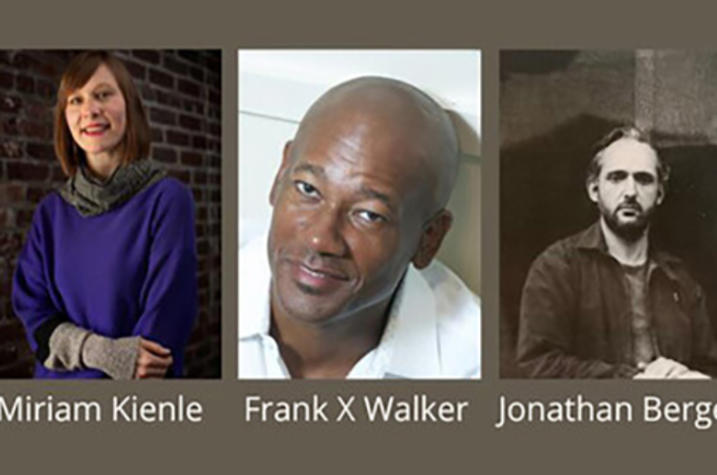‘It’s complicated’: UK Art Museum to host panel on self-taught artists and their works POSTPONED

***PANEL DISCUSSION: It's Complicated: Championing "Self-taught" Artists HAS BEEN POSTPONED***
LEXINGTON, Ky. (Oct. 7, 2022) — The University of Kentucky Art Museum will host a panel discussion focused on the way self-taught artists are understood in the art world. This includes questions of race and identity, formal training, critical reception and collection validation. This free public discussion will take place from 6:30 to 8 p.m. Thursday, Oct. 13 at the Singletary Center for the Arts Recital Hall.
Moderated by UK Art Museum Director Stuart Horodner, this panel will feature artist Jonathan Berger and UK faculty members poet and artist Frank X Walker and art historian Miriam Kienle. The three panelists are established artists who will share personal insights as contributions to the discussion.
Berger’s work centers around the practice of exhibition making and ways in which sites can be repurposed to allow for an expansion and reconsideration of what art can be and how it can be made. He maintains an interest in abstract and experimental forms of both archival work and nonfiction, including embodied biography, portraiture, oral history and documentary. His monumental projects have been displayed at the Museum of Contemporary Art in Los Angeles; The Hebbel Theater in Berlin, Germany; The Queens Museum of Art in New York; and Performance Space 122 in New York. He is currently a clinical associate professor in the Department of Art and Art Professions at New York University.
Kienle, an associate professor of art history at the University of Kentucky School of Art and Visual Studies, specializes in modern, contemporary and American art. She is presently working on a book project titled "Queer Connections: Ray Johnson's Correspondence Art Network," which investigates Johnson’s role as an initiator of the international correspondence art movement. She has curated exhibitions that have been featured at the Smithsonian Archives of American Art’s Fleischman Gallery, Krannert Art Museum, São Roque Museum, Dorsky Curatorial Projects and Parachute Factory.
A Kentucky native, Walker is an award-winning, published writer known for his poetry, including his most famous piece "Turn Me Loose: The Unghosting of Medgar Evers." He was the first African American writer to be named Kentucky Poet Laureate and was awarded the 2014 NAACP Image Award for Poetry as well as the Black Caucus American Library Association Honor Award for Poetry. A lover of comics, Walker curated “We Wear the Mask: Black Superheroes through the Ages,” an exhibit of his personal collection of action figures, comics and related memorabilia at the Lyric Theatre and Cultural Arts Center in 2015. He is the founding editor of "pluck! The Journal of Affrilachian Arts & Culture" and currently serves as a professor of English and African American and Africana studies at UK.
The event is organized in association with recent shows which highlight work by artists Charles Williams, James “Son Ford” Thomas and David Farris. The exhibitions examine the artworks by these self-taught artists who gained their skill without formal training.
For more information about the event, visit https://finearts.uky.edu/art-museum.
As the state’s flagship, land-grant institution, the University of Kentucky exists to advance the Commonwealth. We do that by preparing the next generation of leaders — placing students at the heart of everything we do — and transforming the lives of Kentuckians through education, research and creative work, service and health care. We pride ourselves on being a catalyst for breakthroughs and a force for healing, a place where ingenuity unfolds. It's all made possible by our people — visionaries, disruptors and pioneers — who make up 200 academic programs, a $476.5 million research and development enterprise and a world-class medical center, all on one campus.




